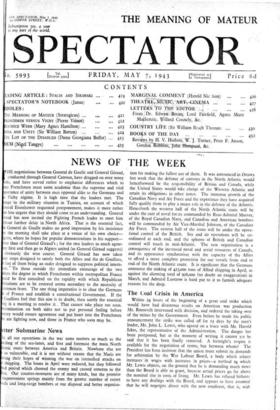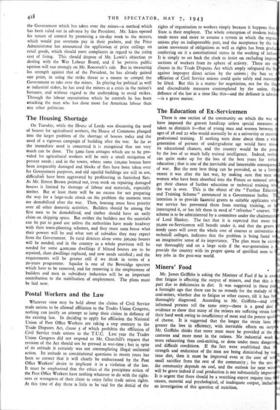The Coal Crisis in America
Within 24 hours of the beginning of a great coal strike which would have had disastrous results on American war production Mr. Roosevelt intervened with decisiOn, and ordered the taking over of the mines by the Government. Even before he made his public announcement the strike was called off for 15 days by the men's leader, Mr. John L. Lewis, who agreed on a truce with Mr. Harold Ickes, the representative of the Administration. The danger has been postponed, but at the moment of writing it cannot yet be said that it has been finally removed. A fortnight's respite is available for the negotiation of terms, but between whom? The President has been insistent that the union must submit its demands for arbitration by the War Labour Board, a body which relates increases' in wages with increases in prices—a method to which Mr. Lewis objects, on the ground that he is demanding much more than the Board is able to grant, because actual prices go far above the nominal rise in costs of living. Mr. Lewis has refused hithertc to have any dealings with the Board, and appears to have assumed that he will negotiate direct with the new employer, that is, with the Government which has taken over the mines—a method which has been ruled out in advance by the President. Mr. Ickes opened his tenure of control by promising a six-day week to the miners, which would put overtime pay in their pockets, and the Price Administrator has announced the application of price ceilings on retail goods, which should meet complaints in regard to the rising cost of living. This should dispose of Mr. Lewis's objection to dealing with the War Labour Board, and if he persists public opinion will run strongly on Mr. Roosevelt's side. But in measuring his strength against that of the President, he has already gained one point, in using the strike threat as a means to compel the Government to take over the mines. In playing for political as well Its industrial stakes, he has used the miners at a crisis in the nation's fortunes, and without regard to the undertaking to avoid strikes. Through the labour organisation which he controls he has been attacking the man who has done more for American labour than any other politician.



























